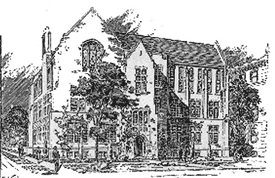Tom’s Diner and the Origin of MP3s
 Suzanne Vega has a fascinating essay over on the New York Times website about her song, “Tom’s Diner,” and its subsequent history, which is rich with details about the artistic creation process, how an artist reacts to an unauthorized remix, the burdens of licensing, and the history of MP3 files. “Tom’s Diner” was originally released as the lead track on her best-selling album (the one that had “Luka” on it). A few years later, a pair of studio engineers calling themselves “DNA” remixed Vega’s a cappella “Tom’s Diner” with instrumentals and a base beat, turning it into a dance track. They then printed up some vinyl records and began selling them, which attracted the attention of Vega’s label. But Vega herself liked the remix, and a licensing deal was struck. To Vega’s surprise, the remix took off and became a hit, three years after the original song was released.
Suzanne Vega has a fascinating essay over on the New York Times website about her song, “Tom’s Diner,” and its subsequent history, which is rich with details about the artistic creation process, how an artist reacts to an unauthorized remix, the burdens of licensing, and the history of MP3 files. “Tom’s Diner” was originally released as the lead track on her best-selling album (the one that had “Luka” on it). A few years later, a pair of studio engineers calling themselves “DNA” remixed Vega’s a cappella “Tom’s Diner” with instrumentals and a base beat, turning it into a dance track. They then printed up some vinyl records and began selling them, which attracted the attention of Vega’s label. But Vega herself liked the remix, and a licensing deal was struck. To Vega’s surprise, the remix took off and became a hit, three years after the original song was released.
And then there’s the story about how “Tom’s Diner” was used to create the MP3.


